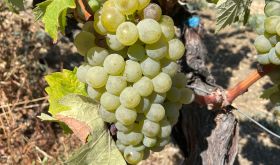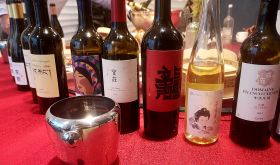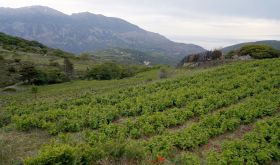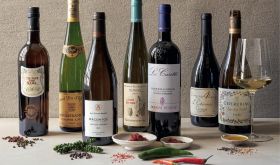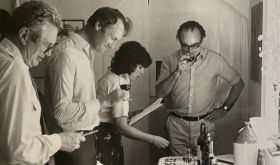According to Master of Wine Tim Hanni (pictured), 'the wine industry owes sweet wine drinkers a HUGE apology!' He claims that a new study with which he has been closely involved 'shatters myths about wine consumers and uncovers opportunities for the wine industry'.
Dr Virginia Utermohlen, MD, Associate Professor at Cornell University, and Hanni analysed the responses to nearly 1,500 online questionnaires by potential judges for the Consumer Wine Awards at Lodi* and claim that their work demonstrates clearly that physiology plays a major role in determining wine preferences. One of the more surprising indications is that drinkers of wines such as White Zinfandel and Liebfraumilch are often the most sensitive tasters. According to the authors, 'glaring errors in understanding by the wine industry have led to the disenfranchisement of millions of consumers and the loss of market share to other beverages'.
The study, according to its originator Hanni, 'reveals a major disconnect between many conventional wisdoms about wine quality and wine consumers while providing new insight into the many conflicting points of view about wine quality in general.' According to Dr Utermohlen, individual differences in taste and smell sensitivity relate to a number of different aspects of personality, personal preferences and behaviours – including wine choices.
Utermohlen and Hanni developed a means of segmenting the wine market into four basic phenotypes – Sweet, Delicate, Smooth and Tolerant – based on physiological and behavioural criteria. 'My passion is in understanding the reasons behind our personal preferences', says Utermohlen. 'Tim and I had come to almost identical conclusions in terms of the roles that physiology and psychology play in our personal choices. I am a Sweet phenotype and meet the criteria of Tim's disenfranchised consumer; I prefer sweet, lower alcohol wines like Riesling and cannot tolerate dry, higher alcohol wines – they burn my mouth.'
This phenomenon appears to apply to the UK as much to the US. UK wine merchants Bibendum commissioned a very similar survey which was answered by even more respondents, about 5,000. Although it will be several weeks before the UK survey is fully analysed, Hanni reports ‘many more similarities than differences and phenotyping for market segmentation of consumers is one of our top findings. Needless to say our learning curve has been extraordinary with the US version and we will apply our new insights to the UK data.
'The industry message to consumers who prefer light, delicate and sweet wines is that they need to become more "educated" and "move up" to higher quality wines; ie dry wines. Our study reveals distinct physiological differences in human sensory anatomy and indicates that the people with the greatest taste sensitivity may well indeed be White Zinfandel drinkers and not the consumers of highly rated, intense red wines. The industry is guilty of alienating a large segment of consumers who frequently opt for other sweet beverage options or even stop drinking wine altogether.'
One of Dr Utermohlen's students also looked at the 'migration' of Sweet and Hyper-sensitive phenotypes to cocktails. ‘What is important for the wine industry,', says Hanni, ‘is that over time many consumers simply abandon wine as a choice and opt for beer (which they incidentally are less inclined to like!) and sweet cocktails.’
See more detail about the US study here. You can also see an example of the US questionnaire here, with results for those classified members of the Sweet phenotype.
For more information contact tim@timhanni.com
*The Consumer Wine Awards at Lodi, another of Tim Hanni's projects, is designed to 'recognise and celebrate the fact that every person has unique physiological and sensory differences that profoundly affect wine and food preferences. Consumer Evaluators assessing each category of wine will be the very consumers who are most inclined to buy and enjoy the wines of that category. The 2011 Consumer Wine Awards will take place 19-21 March in Lodi, California, and is open to wines of every region, grape variety, type and style from around the world. Executed by Diversity Wine Awards LLC, in partnership with the Lodi Tokay Rotary Club, proceeds from the event are used by the Rotary to fund local and international service projects. More information at www.consumerwineawards.com.






